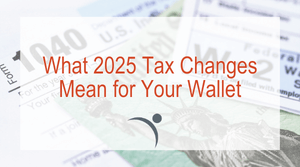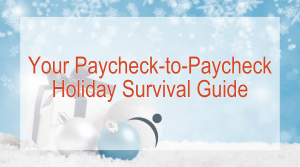How to Avoid Falling Victim to E-File Tax Scams
In today’s digital age, many people turn to the convenience of e-filing their taxes. In fact, the IRS reports that around 93% of returns were filed electronically in 2024. The high number of people who opt for e-filing provides scammers with yet another opportunity to steal personal information. This article offers tips on how you can keep your personal information safe if you choose to file your tax return electronically.
Key Points
- Fake e-file tax websites are designed to steal your personal information and commit identity theft.
- Always use secure, encrypted connections (look for “https”) and avoid public Wi-Fi when filing taxes online.
- Verify your tax preparer’s credentials and data security practices before submitting sensitive information.
- If you fall victim to tax fraud, report it immediately to the FTC and IRS to start recovery and help prevent further scams.
What are E-File Tax Scams?
While searching online for a tax preparation service to e-file your tax return, you might come across a website that looks legitimate, only to realize it’s a fake site created by scammers. These fraudulent sites are often designed to closely resemble trusted tax preparation services, tricking you into entering your personal information. The purpose of these sites is to steal your data and commit fraud or identity theft. By entering your information on an impostor site, you risk compromising your identity.


How to Avoid Falling Victim to E-File Tax Scams
So how do you avoid falling victim to e-file tax scams? First, use a secure Internet connection and never use public Wi-Fi to file your tax return. Hackers have a better chance of stealing your personal information when you’re using an unsecured network.
Another great way to avoid e-file tax scams is to ensure that the tax service website you’re using is safe and that the website is encrypted. Look for the “https” at the start of the URL. The “s” indicates that the site is secure. You may notice that some websites only use encryption on the sign-in page, but if any part of your session isn’t encrypted, your entire account could become compromised.
Ask Your Tax Preparer Questions
Don’t be afraid to ask the tax preparer questions about their data security properties, and how they protect your sensitive information. Many online tax preparers such as TurboTax provide you with this information on their website. You can also ask your tax preparer for their tax preparer identification number. The IRS requires all paid tax preparers to have one before filing returns.
These tips can help you stay safe this tax season, but there are still many more tax scam tactics that fraudsters are using. Be sure to Watch Out for These 5 Tax Scams that we cover in another blog.


What to Do if You Have Fallen Victim to Tax Fraud
If you do fall victim to identity theft, visit IdentityTheft.gov to report it to the FTC, file an Identity Theft Affidavit with the IRS, and get a personal recovery plan in place. Filing a report will also help the FTC and other law enforcement agencies investigate scams and bring criminals to justice.
FAQs
How can I tell if a tax website is fake even if it looks professional?
Scam websites often have small red flags, such as misspellings, odd web addresses, pop-ups asking for sensitive information immediately, or pressure to act quickly. Trusted tax services clearly display contact information and privacy policies.
Can tax scammers file a return using my information without my knowledge?
Yes. If scammers obtain enough personal information, they may file a fraudulent return in your name to claim a refund. This often results in the legitimate taxpayer being notified that a return has already been filed.
Will reporting tax fraud affect my ability to file future returns?
Reporting fraud will not prevent you from filing in the future. In fact, it helps the IRS put additional protections in place for your account.


